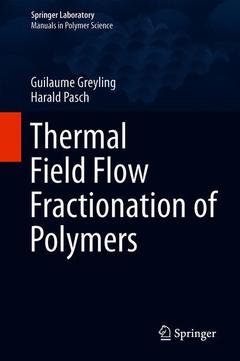Description
Thermal Field-Flow Fractionation of Polymers, 1st ed. 2019
Springer Laboratory Series
Authors: Greyling Guilaume, Pasch Harald
Language: English
Subject for Thermal Field-Flow Fractionation of Polymers:
Approximative price 52.74 €
In Print (Delivery period: 15 days).
Add to cart116 p. · 15.5x23.5 cm · Hardback
Description
/li>Contents
/li>Biography
/li>Comment
/li>
This book introduces the reader to thermal field-flow fractionation and discusses its advantages over the fundamental problems associated with traditional column-based analytical techniques commonly used to characterize polymers and macromolecules. The authors discuss the theoretical background, equipment, experimental procedures as well as the recent advances and applications of thermal field-flow fractionation. Complete with several practical examples and troubleshooting guidelines, the book is written for beginners and experienced separation scientists alike and will enable its readers to optimize their experimental conditions for their specific separation needs and problems.
Provides practical examples and troubleshooting guidelines
Helps to optimize laboratory experiments
Written by experts




